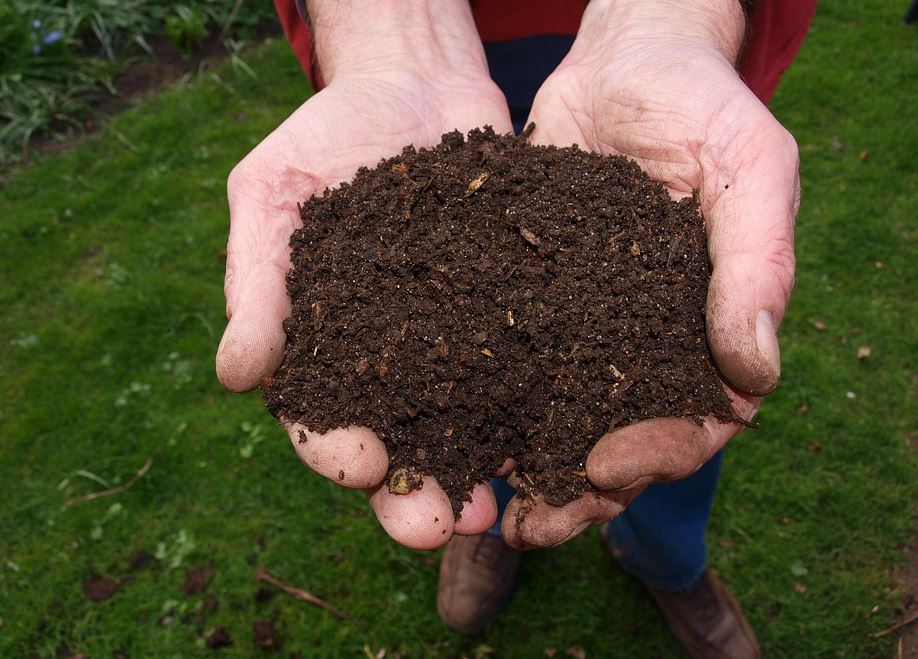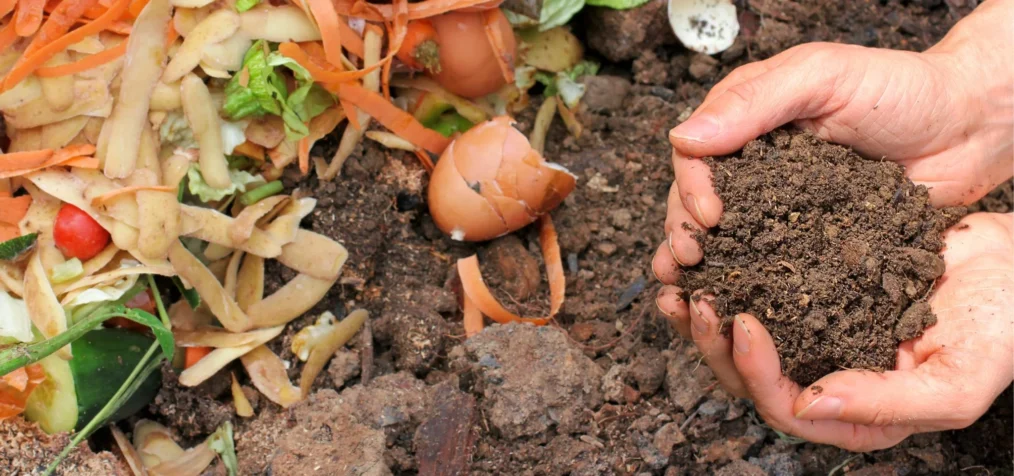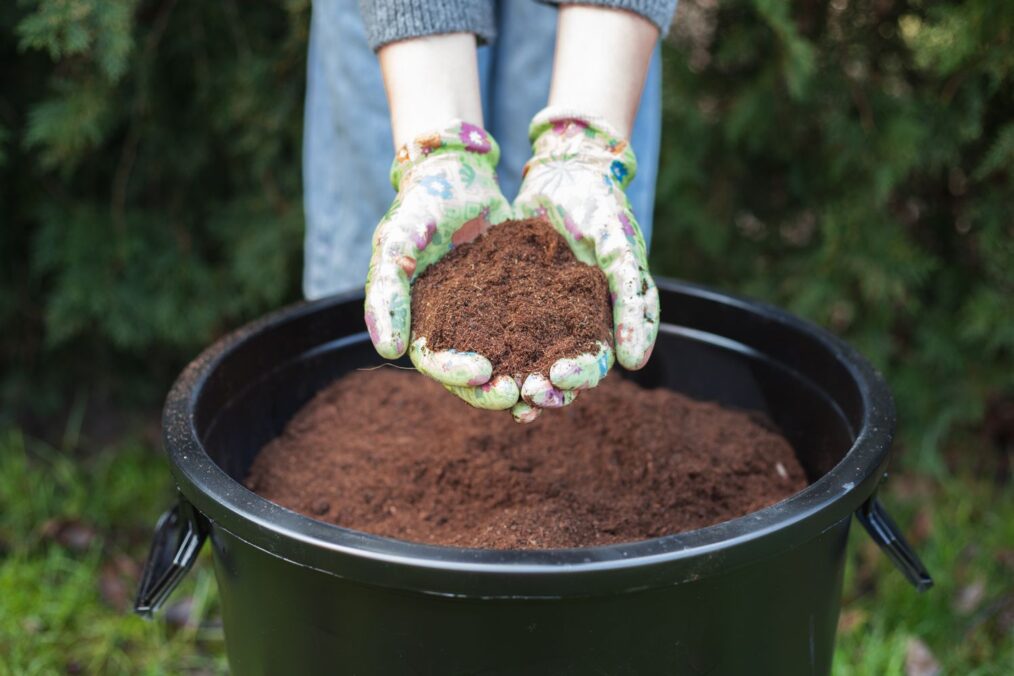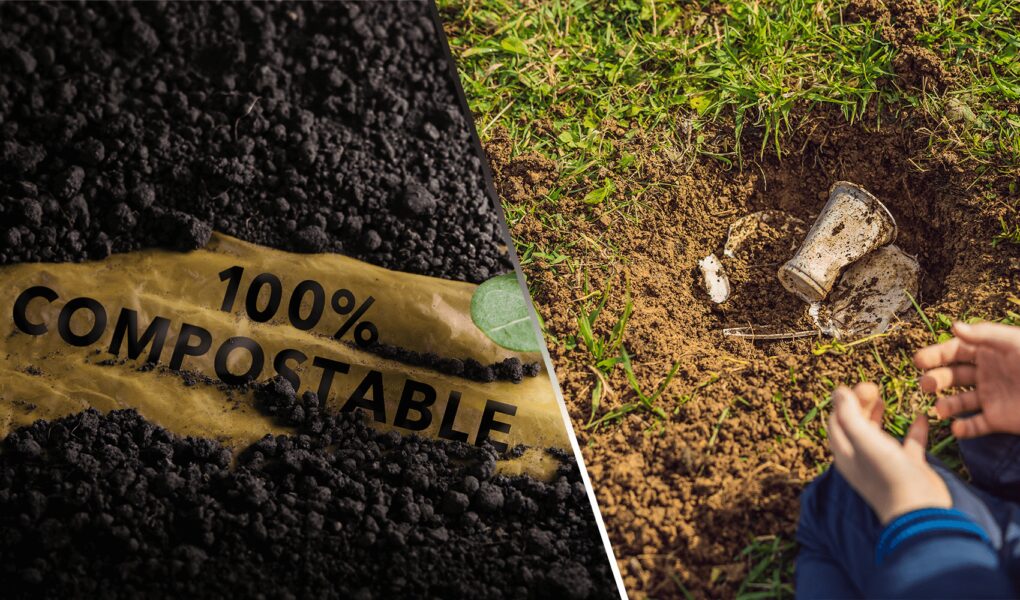In the quest to make our lifestyles more eco-friendly, understanding the nuances of waste management, specifically composting and biodegradation, is crucial. This blog post delves into these two processes, unraveling their environmental impacts and differences. We’ll explore each concept in detail, offering insights that demystify these often-confused terms.
Understanding Composting

The regulated process of composting involves microorganisms breaking down organic materials in the presence of air.
The Process of Composting
Organic waste, such as food scraps and garden trash, can be transformed into a nutrient-rich substance through the nature-inspired process of composting. Aerobic decomposition, a process fueled by microorganisms like bacteria and fungi, is how this change takes place. They produce heat as they break down organic materials in stages, creating humus—a stable substance that resembles soil.
Environmental Benefits of Composting
The environmental benefits of composting are significant. It reduces landfill waste, cutting down methane emissions, a potent greenhouse gas released when organic matter decomposes anaerobically in landfills. Composting also enriches the soil, enhancing its ability to retain moisture and suppress plant diseases. This natural fertilizer reduces the need for chemical fertilizers, promoting sustainable agriculture.
Biodegradation Explained

Biodegradation refers to the natural process of organic substances being broken down by living organisms, primarily microorganisms.
Biodegradation Process
Any biological process that decomposes organic materials is referred to as biodegradation, which is a more general word than composting. In contrast to composting, it may happen in a variety of settings, such as water, soil, or even inside living things, and it doesn’t require human intervention. Temperature, oxygen availability, and the kind of substance—biodegradable soil, for example—all affect how quickly and how a thing degrades.
Environmental Impact of Biodegradation
For living things to reuse dead materials and garbage, they must first undergo biodegradation, which is a crucial part of nature’s recycling process. Not all biodegradation, though, is advantageous. Certain substances, including certain plastics with the label “biodegradable,” have the potential to decompose into tiny plastic particles that harm the environment. Evaluating the environmental effect of materials requires an understanding of the conditions under which they biodegrade.
Impact on Climate Change

The role of composting and biodegradation in mitigating climate change is a topic of growing importance.
Carbon Footprint Reduction through Composting
The direct reduction of waste management’s carbon impact is achieved by composting. Composting reduces the amount of methane emissions from organic waste, which is a greenhouse gas far more powerful than carbon dioxide, by keeping it out of landfills. Furthermore, adding compost to agricultural practices can enhance soil health and boost soil carbon sequestration.
Biodegradation’s Role in Ecosystem Balance
Even though it’s a natural process, biodegradation helps control the climate. A key element of the carbon cycle is the balanced return of carbon to the soil and environment through the decomposition of organic materials by microbes. However, the unchecked biodegradation of artificial materials, such as certain plastics, can result in detrimental greenhouse gas emissions and other environmental imbalances.
Conclusion
Significant environmental effects result from both biodegradation and composting, two essential waste management procedures. While biodegradation is the organic matter’s natural breakdown under a variety of settings, composting is a regulated, aerobic process that yields a useful product. Both help lessen waste and its negative effects on the environment, but making the most of both in our quest for a more sustainable world requires an awareness of their distinctions.




